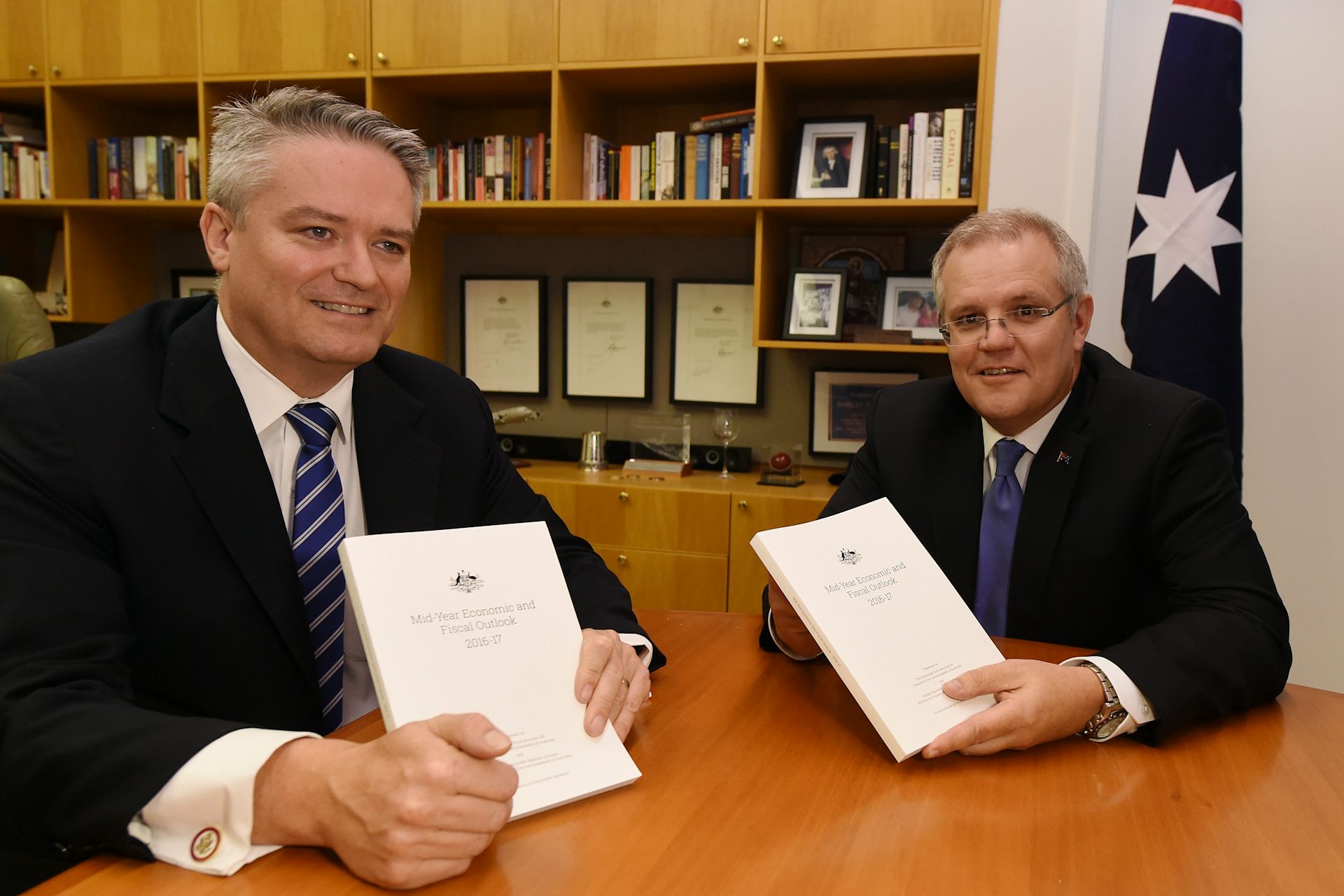Despite four prime ministers and four treasurers since 2013, Australia's budget situation has not improved. Only Chris Bowen has no case to answer as his time as treasurer was too short for any serious budget repair work to have been attempted.
 It was the then prime minister Kevin Rudd who initially unleashed the spending and Julia Gillard who added fuel. Their treasurer, Wayne Swan, seemed to think that given enough time the economy would grow the budget out of deficit. To be fair, every treasurer since has adopted the same strategy.
It was the then prime minister Kevin Rudd who initially unleashed the spending and Julia Gillard who added fuel. Their treasurer, Wayne Swan, seemed to think that given enough time the economy would grow the budget out of deficit. To be fair, every treasurer since has adopted the same strategy.
That allowed for the introduction of high-spending programs such as the National Broadband Network (NBN), Gonski education funding model and the National Disability Insurance Scheme (NDIS). Treasurer Swan wasn't averse to silly tax proposals that either raised no revenue, or added substantial costs to the economy and households for little gain.
A change in government in 2013 should have brought a return to sensible economic management. But no. The Abbott government did get around to repealing the mining tax and carbon tax but didn't seem to feel any urgency in doing so.
The debt ceiling was abolished too. That was one mechanism introduced by the Rudd government that could have delayed the enviable blow-out in debt (from A$319.5 billion in the 2013-14 federal budget to A$498 billion in the MYEFO).
A constant drip feed of reports of the government having to approach the parliament to raise the debt ceiling would have placed some political pressure on the government. But politicians don't like accountability for themselves, and the debt ceiling was abolished well before the carbon tax or mining tax.
Joe Hockey's first budget was incoherent. Spending was forecast to increase from $410.7 billion in 2013-14 to $412.52 billion in 2014-15. The budget deficit was initially forecast to be $29.8 billion. We now know the deficit was $37.9 billion that year — the MYEFO forecasts a $36.5 billion deficit for 2016.
Liberal propaganda blamed the parliament's refusal to pass "budget savings" — a hodgepodge of incoherent and/or poorly explained tax increases. Hockey's second budget was a cash splash for small business — but again lacked any serious purpose or intent to rein in excessive expenditure. Luckily a new prime minister and treasurer saved us from a third Hockey budget.
Despite promising early signs, the Turnbull-Morrison combination has been disappointing. The government is easily distracted and appears timid on the economic front.
There is also a complete lack of goodwill on the electorate's part. Mind you, after several years of lacklustre economic performance and second-rate political leadership it is not surprising that the electorate is grumpy.
So the poor budget figures should be no surprise. While the AAA rating remains intact for now, we should not be surprised that a downgrade remains a real possibility.
Our friends in Canberra have no idea how to return the budget to surplus. This lack of imagination and initiative is bipartisan. Losing the AAA rating would be a lagging indicator of a continued, sustained and persistent failure to rein in spending and restore the budget to surplus.
No comments:
Post a Comment